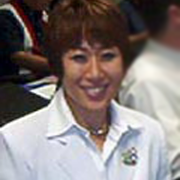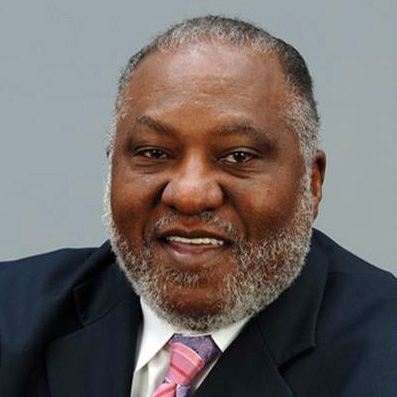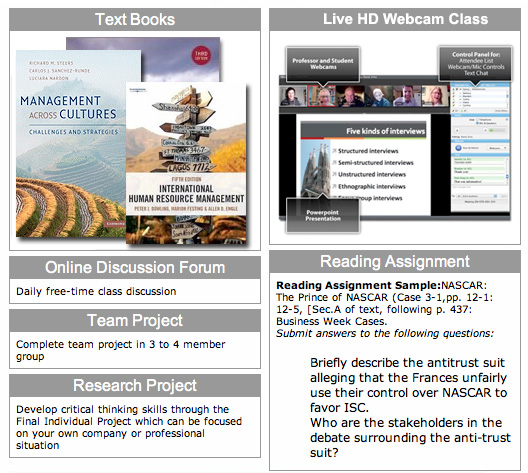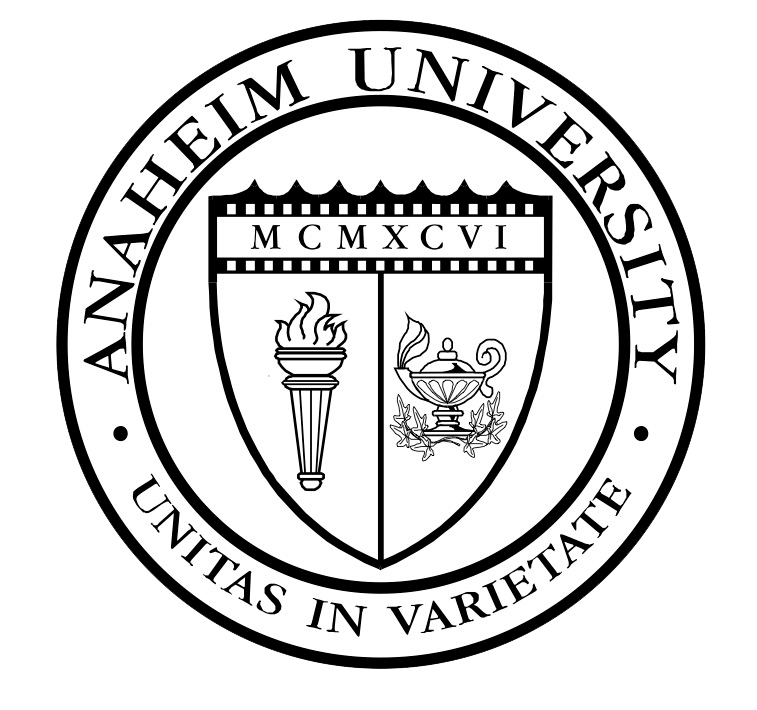Doctor of Business Administration: Management
June 3, 2023 2025-01-27 1:45Doctor of Business Administration: Management
Online DBA with a concentration in Management
Excel in leadership with Anaheim University’s online DBA program, specializing in Management. This concentration equips you with advanced business strategies and effective management techniques. Enroll now to enhance your career and become a dynamic leader in the corporate world.
- 9 foundation courses + 4 courses in chosen area of concentration + 2 elective courses + Dissertation = 60 credit hours
- Earn an accredited Doctor of Business Administration (DBA) in approximately 3 years while working full-time
- Reasonable tuition


Kwok Shum, Ph.D.
Associate Dean, Akio Morita School of Business
Director, Kisho Kurokawa Green Institute
Professor
After earning a Stanford University Master of Science in Engineering degree, Dr. Kwok Shum received his Ph.D. in Management of Technology from the Tokyo Institute of Technology. Dr. Shum’s research and teaching interests lie in new technologies, renewable energy industry and deployment, the

Carlos Aquino, Ph.D.
Professor
Holding a George Washington University MS in Structural Engineering and a University of Sao Paolo Ph.D. in Sciences and Technology, Dr. Carlos Tasso Eira De Aquino is an accomplished senior executive and educator combining over 25 years of experience in leadership and scholarship in Business, Education, IT, and Engineering. In his executive career, he has been strategically

Vince Carter, Ph.D.
Professor
Dr. E. Vince Carter is a Professor at the Anaheim University Akio Morita School of Business and Kisho Kurokawa Green Institute. Vince’s teaching approach develops learning blueprints to align structured Green Marketing skills with creative knowledge discovery. This dialectical dynamic embraces the spirit of Kisho Kurokawa’s design philosophy of symbiosis for The Age of Life. Dr. Carter

Robert Diotalevi, J.D.
Professor
Dr. Robert Diotalevi, Esq., LL.M., is serving in his 17th year as Associate Professor of Legal Studies at Florida Gulf Coast University in Fort Myers, Florida. He was the founding Legal Studies Program coordinator. He has been a lawyer for 33 years as a member of the Massachusetts and Florida bars. He possesses 4 degrees and has

Mariah Jeffery, Ph.D., CSCP
Professor
Dr. Mariah Jeffery holds a Ph.D. in Operations Research and a Master of Science in Industrial Engineering from the University of Central Florida, and is an APICS Certified Supply Chain Practitioner. She has extensive industry experience, consulting on supply chain management and data analytics for Fortune 500 clients, including IBM, Coca-Cola, General Motors, and the United States

Tamara Myatt, Ph.D.
Professor
Holding a Ph.D. and Masters in Human and Organizational Systems from Fielding Graduate University, Tamara Myatt has spent more than a decade transforming the professional and educational lives of young and disadvantaged people in some of the poorest and most dangerous regions of the world, championing the causes of women, and orchestrating locally and globally scaled initiatives

Chris Raymond, Ph.D.
Professor
Dr. Christopher Raymond earned a Ph.D. in economics from the University of California, Santa Barbara, and later completed an international MBA from École National des Ponts et Chaussées in Paris, France. After earning his MBA, Dr. Raymond became an economics lecturer in the Management School at Imperial College, London. While there, he also served as Deputy Director

Stavros Sindakis, Ph.D.
Professor
With both a Ph.D. and MBA in Strategy, Enterprise & Innovation from the University of Portsmouth, Dr. Stavros Sindakis has made significant contributions to these fields through his research and publications on entrepreneurship and business innovation including his books Entrepreneurial Rise in Southeast Asia, and Analytics, Innovation and Excellence-Driven Enterprise Sustainability, with his third in progress. Dr.

Barbara Son, Ph.D.
Professor
Holding a Ph.D. in Urban Business Economics from Portland State University, and a Masters in Urban Affairs with a concentration in Technology, Business, Economics, and Public Administration from Boston University, Dr. Barbara Son is well-experienced in the field of online education and has taught global management at Boeing in Long Beach, DBA at University of Sarasota/Argosy University,

John Wang, Ph.D.
Professor
Dr. John Wang received a scholarship award to complete his Ph.D. in Business Administration at Temple University in 1990, after earning his M.S. in Systems Engineering from Harbin Institute of Technology. In addition to serving as a professor in the Anaheim University Akio Morita School of Business, Dr. John Wang is a professor in the Department of

Andrew E. Honeycutt, DBA
President, Anaheim University
Professor
Dr. Andrew E. Honeycutt, President of Anaheim University, is the recipient of a Harvard University Doctor of Business Administration (DBA) degree in Marketing and a Boston University Master of Business Administration (MBA) degree in Organizational Behavior. Dr. Honeycutt has served as Dean of the School of Business and Management and Director of the

Robert Robertson, Ph.D.
Dean, Akio Morita School of Business
Dr. Robert Robertson holds a Ph.D. in Management and Organization (Stirling University, Scotland); Massachusetts Institute of Technology (MIT) Sloan School of Management Executive Certificate in Innovation and Strategy, Post-Doctoral Professional Certificate, International Business and Leadership (Argosy University); Post Graduate Diploma in International Management-China (University of London); Master of Studies in Law (Vermont

William Hartley Ph.D.
President Emeritus
Professor
Dr. Hartley’s background is a combination of education, private sector work, teaching and consulting. Holding a bachelor’s degree, three master’s degrees, and a Ph.D. from the University of Colorado, University of California at Berkeley and University of Wisconsin respectively, Dr. Hartley has had a variety of jobs from administrative manager of the R&D division

Caryn Callahan, Ph.D.
Senior Professor Emeritus
Holding a Harvard University Ph.D. in East Asian Languages in Civilizations with a specialization in Japan and an MBA specializing in Finance-Accounting from the University of California Los Angeles (UCLA), Dr. Caryn Callahan is a former Vice President and International Equity Analyst for Merrill Lynch Japan as well as Financial Analyst for W.R. Grace
Overview
The Online Doctor of Business Administration (DBA) through Anaheim University’s Akio Morita School of Business allows working professionals to obtain a DBA degree while working full time no matter where they reside. Experience the following AU advantages:
Benefits
- Enjoy a highly interactive online program as you connect with your professor and classmates in two 90-minute live online webcam seminars per course and daily discussion forum
- Learn from expert guest speakers and highly-qualified professors, who hold doctoral degrees and have extensive experience in various fields of business
- Receive the Doctor of Business Administration degree through the flexibility of online learning
- Network with individuals from around the world, providing a rich and culturally diverse environment in which to study.
- Earn your Doctoral degree in approximately 3 years while working full-time
Features:
- 9 foundation courses + 4 courses in chosen area of concentration + 2 elective courses + Dissertation
- Accelerated learning – courses are six weeks long
- Live online webcam seminars twice during each course
- New terms begin every 6 weeks
- Complete a dissertation that explores an existing issue and provides the opportunity to display mastery of the theory and concepts covered in your course of study
- Total duration = Approximately 3 years
Curriculum
Students must complete 9 foundation courses in business administration and research; 4 courses in their chosen area of concentration (Management, International Business, Global Sustainable Management, or Entrepreneurship); 2 elective courses; a qualifying exam and a comprehensive exam in order to advance to the dissertation phase of the program; and a dissertation, which consists of a dissertation proposal writing course and 4 dissertation terms
DOCTOR OF BUSINESS ADMINISTRATION CORE COURSES
Foundation Courses (3 credits each)
- Intellectual Property
- International and Multinational Marketing
- Leadership & Communication in Multinational Corporations
- Supply Chain Management
- Applied Research Methods
- Business Analytics
- Global Strategy & Innovation Management
- Transforming Systems through Adaptive Leadership
- Academic Research and Writing
Choose one of four areas of concentration
I. MANAGEMENT
Specialized Courses (3 credits each)
Organizational Development and Change Management
Human Resource Management Science
Ethics in Business and Management
International Business Law and Practice
II. INTERNATIONAL BUSINESS
Specialized Courses (3 credits each)
International Financial Management
Ethics in Business and Management
International Business Law and Practice
Seminar in International Business
III. GLOBAL SUSTAINABLE MANAGEMENT
Specialized Courses (3 credits each)
- Sustainable Lifecycle Management
- Sustainable Project Management
- Sustainable Accounting Management
- Seminar in Global Business Sustainability
IV. ENTREPRENEURSHIP
Specialized Courses (3 credits each)
- Creative Entrepreneurship
- Entrepreneurial Funding
- Social Entrepreneurship
- Organizational Development and Change Management
ELECTIVE COURSES
- Choose 2 elective courses (1 in each of 2 of the other 3 concentrations)
COMPREHENSIVE EXAM
DOCTORAL DISSERTATION STUDIES
- Writing the Doctoral Dissertation Proposal (3 Credits)
- Doctoral Dissertation Writing (12 Credits)
How the Program Works:
Course Schedule & Evaluation Structure
Online Discussion Forum
Team Project
Week 1
Week 2
Live Webinar
Week 3
Week 4
Week 5
Live Webinar
Week 6
Final Project
Program Study Suggestions (22.5 hours per week for each six week course)
Each week the student will:
- Look briefly through the week’s reading assignment; the weekly written questions to be answered and submitted the online discussion forum question for the week; the topic for the real time online seminar (weeks two and five); and any other assignments for the week. (.25 hours)
- Complete weekly reading assignments, making notes on material to be used in the written discussion questions or to answer topics posed in the online discussion forum. (3 hours)
- Complete individual weekly written assignments. (2 hours)
- Review weekly Online Discussion Forum questions and search for other material to be used for potential answers. (1 hour)
- Discuss the Online Discussion Forum topic with other students and the professor via the Online Discussion Forum site using material from the assigned course material and additional material relevant to the topic. (4 hours)
- Review video presentations which may be 20 to 30 minutes in length and respond to the video questions which are posed at the end of the video. Otherwise, students will complete the internet assignment which is due the end of the 3rd week of the course. The length of the internet assignment will depend on whether video presentations are used in the course. (4 hours)
- Preparation for and participation in real-time online class, review transcripts and make notes (2.5 hours)*
- Prepare for and participate in the Team Project by doing appropriate research and providing the written material for one’s area of responsibility in the project. (2 hours)*
- Conduct library/internet research, further reading and note taking to complete the final research project due at the end of week six. (3.75 hours).”

Objectives
Upon completion of the DBA program, students will be able to:
- Analyze and interpret organizations operating in an increasingly global, diverse and technological environment.
- Conduct original research of leadership principles, theories, and skills required to enhance organizational performance
- Apply the concepts of ethical and sustainable leadership to manage change and optimize organizational performance.
- Enhance leadership capacity of organizations in a variety of workplace settings.
- Analyze organizational structures to assist in improving organizational performance.
- Devise appropriate strategies for ongoing professional development and implementation of these strategies upon successful completion of the DBA.
- Design and construct a publishable research project
Curriculum
Anaheim University’s Doctor of Business Administration (DBA) degree program is comprised of 60 graduate credit hours beyond a completed MBA. The DBA program consists of 9 foundation courses in business administration and research, a qualifying exam which the student must pass at the end of the first year of study, 4 courses in the student’s chosen area of concentration, 2 elective courses, a comprehensive exam which the student must pass in order to advance to the dissertation phase, and a dissertation. Each course in the DBA program is three credit hours, with the exception of the final dissertation writing course.
Curriculum for the DBA with a concentration in Management:
Foundational Courses :
Management Core Courses :
Elective Courses (Choose 1 in each of 2 of the other 3 concentrations):
International Business courses:
Sustainable Management courses:
Entrepreneurship courses:
Doctoral Dissertation Studies Courses :
Foundational Courses:
The objective of this course is to inculcate in students an understanding of the value of intellectual property to an entrepreneurial venture and for students to learn how to create, protect, and preserve intellectual capital. Students will develop higher-level critical thinking skills, evidenced by analysis, evaluation, and synthesis.DBA 605 International and Multinational Marketing
International Marketing frequently requires major changes in how organizations conduct business in a global marketplace. It is a necessity for today’s business leader to be aware of the implications of marketing strategies and how they are employed in different countries with different cultures. This course focuses on identifying and meeting the needs of specific international target markets through close interaction with managers from other functional areas, such as promotion, finance, accounting and human resources.DBA 615 Leadership in Global and Multicultural Organizations
In the increasingly complex global environment, developing and creating strategic choices is necessary for success and is critical for long-term profitability. This course covers the major topics in managing multicultural organizations such as comparative management issues, the formation and implementation of appropriate strategies, building strategic alliances, negotiations, cross-culture communications, international human resource management, and business ethics.DBA 617 International Supply Chain Management
Supply Chain Management involves the flows of materials and information among all of the firms that contribute value to a product, from the source of raw materials to end customer. The goal of this course will be to help students understand the strategic importance of good supply chain design, planning, and operations for every firm, to provide students with the use of key drivers on a conceptual and practical level to improve supply chain performance, and to give students a solid understanding of analytic methodologies for supply chain analysis necessary to achieve significant increase in performance.DBA 625 Applied Research Methods — Qualitative and Quantitative
This course focuses on students’ acquisition of basic knowledge of the philosophy of science, including the review and critique of concepts and theories. Students learn about the qualitative and quantitative bases for inquiry and examine the ethical, social, and political components of conducting research. Quantitative based concepts include experimental, survey, and existing action research. The qualitative-based concepts include case study, grounded theory, and ethnography. Assignments consist of knowledge demonstration and problem-solving for professional practice. Course assignments will emphasize the practical application of writing and critical-thinking skills and the integration of professional application at the doctoral level. This course is the blending of four overlapping areas of study: Data Mining, Business Process Optimization, Applied Business Statistics, and Information Systems/Business Intelligence. It is designed to provide students with new insights into business performance as a result of using different methods of analysis. The ultimate outcome is to provide organizations with the tools necessary to make frequent, faster, smarter, and data-driven real-time decisions.DBA 629 Global Strategy & Innovation Management
Innovation management is an important concept that can greatly impact global firms. Essentially, innovation allows a firm to achieve a higher level of productivity and performance, and it provides a competitive advantage in the turbulent global marketplace. This course describes innovation and highlights the importance of innovation for global firms.DBA 635 Transforming Systems Through Adaptive Leadership
In today’s business environment, change is a given. This course will look at systems thinking and how to look at systems more holistically to determine what changes are needed. Systems thinking is rooted in the biotic environment and there is much that can be learned from nature and how it adapts to change. Adaptive leadership is about having a vision for what changes need to occur to adapt to a new system. It is about including others and their experiences and input in order to promote change and having empathy in the process. Adaptive leadership is about experiments and taking calculated risks and then finding solutions where everyone benefits.DBA 645 Academic Research and Writing
This course is designed to develop students’ critical thinking and competencies to navigate and successfully complete their doctoral programs and dissertations. Students will engage in learning activities to become better readers of academic texts, to understand the process of academic writing, and to become proficient in various academic writing genres. Emphasis will be placed on examining connections between various academic writing genres, refreshing APA style guidelines, and understanding the dissertation process. Students will develop a scholar-practitioner perspective through reading, writing, and reflection within their specific discipline and program.Management Core Courses :
DBA 613 Organizational Development and Change Management
In this course, students will gain an understanding of the development of organizational structure, strategies and processes through a comprehensive blending of organizational theory and concepts in the behavioral sciences and their application to organizational development and change. This course will provide students with a conceptually sound understanding of the role of management science in the decision-making process within organizations. An applications approach to understanding a quantitative approach to decision will be used along with powerful examples to illustrate the applications.DBA 633 Ethics in Business and Management
This course will prepare students to understand and apply ethical decision-making models within an organizational management model. These models will introduce students to ethical skills, vocabulary, and other tools necessary to behave in an ethical manner, not only within organizations but in society at large.DBA 640 International Business Law and Practice
This course provides a comprehensive coverage of the legal, cultural, political, economic and ethical issues faced by global business managers. An understanding of these issues is enhanced through the use of real world examples, cutting edge cases, managerial problems, and ethical issues.International Business Elective Courses :
DBA 610 International Financial Management
This course is concerned with international financial management in an international setting. Financial management is mainly concerned with how to optimally make various corporate financial decisions such as those pertaining to investment, financing operations, dividend policy and working capital management. In developed countries with well-developed capital markets, maximizing shareholder wealth is generally considered the most important corporate objective. Financial management is now studied in an international context as we live in a highly globalized and integrated world economy.DBA 633 Ethics in Business and Management
This course will prepare students to understand and apply ethical decision-making models within an organizational management model. These models will introduce students to ethical skills, vocabulary, and other tools necessary to behave in an ethical manner, not only within organizations but in society at large.DBA 640 International Business Law and Practice
This course provides a comprehensive coverage of the legal, cultural, political, economic and ethical issues faced by global business managers. An understanding of these issues is enhanced through the use of real world examples, cutting edge cases, managerial problems, and ethical issues.DBA 710 Seminar in International Business
Successful managers in a world of global competition must have an array of skills, talents and abilities at their disposal. This course uses extensive examples to illustrate the vibrancy and challenge of international business. Coverage of relevant topics includes the degree of geographical literacy necessary to succeed in international markets, which is frequently overlooked in more traditional courses.Sustainable Management Elective Courses :
DBA 611 Sustainable Lifecycle Management
The field of industrial ecology is playing an instrumental role in the redesign and realignment of industrial systems and activities to be more ecologically and socially responsible. Critical to the field of industrial ecology is life cycle assessment (LCA), which involves methods, techniques, and process and procedures analysis of the full range of environmental impacts, product or service life cycles, and supply chains. This course enables participants to develop a hands-on, in-depth understanding of the frameworks, principles, advanced tools, and applications of life cycle assessment. As part of the course, students learn to address both social and environmental impacts from cradle-to-grave. Students will also review the state of life cycle practice and current initiatives involving companies, governments, and NGOs. Student will create a manual that details the step-by-step process for managing a sustainable lifecycle from cradle-to-graveDBA 621 Sustainable Project Management
Sustainability and Corporate Citizenship are playing a more important role, both in how consumers, stakeholders, employees, and competitors view organizations, and in the demand for skilled project managers who can manage a project from a triple bottom line. Organizations need to know that the individuals managing their projects can integrate methods to achieve corporate responsibility goals and still achieve project specific objectives. Project Managers need credentials that demonstrate these specialized qualities. As part of the course, students learn how to develop a project plan that accomplishes the purpose and need of the project, while factoring in the impacts that the project will have on the environment and society. Student will create a manual that details the step-by-step process of sustainable project management, including the challenges, sustainable solutions and impacts to the project budget.DBA 651 Sustainable Accounting Management
Accounting for sustainability involves linking sustainability initiatives to company strategy, evaluating risks and opportunities, and providing measurement, accounting and performance management skills to ensure that sustainability is embedded into the day-to-day operations of the company. Sustainability accounting is the term used to describe new information management and accounting methods that attempt to create and provide high quality, relevant information to support corporations in relation to their sustainable development. As part of the course, students learn how to manage sustainability accounting with activities, methods and systems that analyze and report environmentally and socially induced financial impacts. Student will create a manual that details the step-by-step process of managing sustainable marketing, including strategy, risks and opportunities.DBA 711 Seminar in Global Business Sustainability
International economic development is the biggest challenge that global businesses face today. Companies are increasingly being held responsible for impacts of their products, processes and services on society and the environment. These impacts concern environmental effects and social effects in balance with the economic aspects of the company. This responsibility is called Corporate Responsibility or Corporate Citizenship and can include, but is not limited to, climate change, clean water, child labor, biodiversity, human rights, occupational health and safety, and poverty. As part of the course, students learn how global companies interpret their responsibility and try to manage and improve these issues in balance with their daily operations. Students will learn how sustainable companies publish sustainability reports and use management systems and sustainability programs to implement this Corporate Responsibility in their organization. Student will create a manual that details the step-by-step process for managing global business sustainability.Entrepreneurship Elective Courses:
DBA 612 Creative Entrepreneurship
Creative Entrepreneurship is a course that provides a comprehensive and practical analysis of creativity and innovation and their roles in entrepreneurship. The course explores the factors and issues involved in creative problem solving; developing a creative mindset; thinking creatively; finding, developing and evaluating ideas; and building a creative climate within an organization. Finally, the course looks at the entrepreneurial economy, the practice of innovation, entrepreneurial strategies, and the practice of entrepreneurship.DBA 613 Organizational Development and Change Management
In this course, students will gain an understanding of the development of organizational structure, strategies and processes through a comprehensive blending of organizational theory and concepts in the behavioral sciences and their application to organizational development and change.DBA 622 Entrepreneurial Funding
Entrepreneurial Funding is a course that applies the theory and methods of finance and economics to the rapidly evolving field of entrepreneurial finance. The course explores how entrepreneurs, venture capitalists, and outside investors can rely on academic foundations as a framework to guide decision making. It focuses on value creation as the objective of each strategic and financial choice that an entrepreneur or investor makes. The course explores the influences of risk and uncertainty on new venture success, and presents a comprehensive survey of approaches to venture valuation.DBA 632 Social Entrepreneurship
Social Entrepreneurship examines how entrepreneurs creatively solve social problems. The course explores theories of social change and investigates how personality impacts the decision to become a social entrepreneur. The course continues with a study on the process of creating a sustainable social enterprise and achieving maximum impact through social entrepreneurship. Finally, the course explores the distinctive characteristics of the social enterprise context.Dissertation Studies Courses
This course focuses on deals with both the theoretical and practical aspects of the doctoral dissertation proposal. The purpose of the course is to assist students through the proposal writing processes including the problem statement, conceptual/theoretical framework, literature review, research design and methodology. The final doctoral study demonstrates students’ scholarly ability to examine, critique, and synthesize knowledge, theory, and experience, so that new ideas can be tested; best practices identified, established, and verified; and theoretical, practice, or policy constructs evaluated and advanced. In all cases, students engage in rigorous inquiry that results in new knowledge, insight, or practice, demonstrating efficacy in the world of business and management. This course assists students in working through the process of the doctoral study. Students design personal best practices for completing their study within a designated context. They will also work with their major professor and their dissertation committee members, with whom they establish and maintain strong working relationships and on whom they rely to mentor and approve their proposal and final study. Ultimately, students completing the doctoral study make a fresh contribution to the field of practice in the professional business environment. Dissertation students are required to complete the Collaborative Institutional Training Initiative (CITI) Social-Behavioral- Educational (SBE) Foundations certificate, which is a web-based human research protection education program. Upon successful completion of the dissertation, students will submit a portfolio that documents their professional conference attendance, presentations, and publications. This portfolio can provide a comprehensive and compelling demonstration of a student’s expertise in their field.
Course Schedule
DBA Course Schedule 2025
Live online webcam seminars are 90 minutes; the first hour is led by the professor and the final half-hour is for student-led discussion. All times are California/Pacific Time. Please note the schedule is subject to change.
Term | Term Dates | Courses Offered | Live Online Webcam Seminar Dates |
1 | January 2, 2025 – | – DBA 623 Human Resource Management Science – DBA 850 Dissertation | TBA |
2 | February 10, 2025 -March 23, 2025 | – DBA 651 Sustainable Accounting Management – DBA 850 Dissertation | TBA |
3 | March 24, 2025 – | – DBA 625 Applied Research Methods – Qualitative & Quantitative – DBA 627 Business Analytics – DBA 850 Dissertation | TBA |
4 | May 5, 2025 – | – DBA 629 Global Strategy & Innovation Management – DBA 635 Transforming Systems through Adaptive Leadership – DBA 850 Dissertation | TBA |
5 | June 16 – | – DBA 610 (Int Bus. Specialized) International Financial Management – DBA 611 Sustainable Lifecycle Management – DBA 850 Dissertation Comprehensive Exam (Jul 29 – Aug 4) | TBA |
6 | Aug 4 – | – DDBA 621 Sustainable Project Management – DBA 633 (Int Bus. Specialized) Ethics in Business and Management – DBA 850 Dissertation | TBA |
7 | September 15 – | – DBA 640 (Int Bus. Specialized) International Business Law and Practice – DBA 820 Writing the Doctoral Dissertation Proposal – DBA 850 Dissertation | TBA |
8 | October 27 – | – DBA 602 Intellectual Property – DBA 850 Dissertation | TBA |
Tuition & Fees
Doctor of Business Administration (DBA) Program Fees
Affordable Pay-As-You-Learn System: Pay for only one course at a time.
Doctor of Business Administration Degree Program Fees | $ 75.00* |
Registration Fee (Non-refundable) | $ 100.00* |
STRF Fee* (non-refundable, CA residents only) | $ 0.00* |
NON-REFUNDABLE FEES DUE UPON SUBMISSION OF THIS ENROLLMENT AGREEMENT | $1,500.00 /course |
(20 courses X $1,500 Each) | $ 30,000* |
Records Fee per term | $200.00/term |
(20 terms X $200) | $4,000* |
Estimated Textbook Fees | $1,290.00* |
Other Fees | $2,000.00* |
Transfer Credit Fee2 (per course) | $ 75.00 (optional) |
Original Transcript | (No cost) |
Each Additional Transcript Fee | $ 25.00 (optional) |
End of Program Fees | |
Diploma | (No cost) |
Replacement Diploma | $ 200.00 (optional) |
Replacement Cover | $ 100.00 (optional) |
Course Completion Letter | $ 35.00 (optional) |
TOTAL COST OF PROGRAM | $ 37,465.00** |
* Costs included in the Total Cost of Program
**Assumes program completion in 20 enrolled terms and successful completion of each course on the first attempt.
Footnotes:
1 Student Tuition Recovery Fund (STRF): The Student Tuition Recovery Fund (STRF) is administered by the California BPPE and applies only to California residents. The STRF fee is currently zero dollars ($0.00) per one thousand dollars ($1,000) of institutional charges The State of California established the Student Tuition Recovery Fund (STRF) to relieve or mitigate economic loss suffered by a student in an educational program at a qualifying institution, who is or was a California resident while enrolled, or was enrolled in a residency program, if the student enrolled in the institution, prepaid tuition, and suffered an economic loss. Unless relieved of the obligation to do so, you must pay the state-imposed assessment for the STRF, or it must be paid on your behalf, if you are a student in an educational program, who is a California resident, or are enrolled in a residency program, and prepay all or part of your tuition. You are not eligible for protection from the STRF and you are not required to pay the STRF assessment, if you are not a California resident, or are not enrolled in a residency program.
2 If an applicant requests that a course, or courses, taken at another university be reviewed for transfer credit, the applicant is charged $75 for each course reviewed. For each course approved for transfer credit, the cost of the applicant’s program will be reduced by the cost of the course that does not have to be taken and the number of courses the applicant will be required to take to complete degree requirements will be reduced by one. Textbook costs will be reduced by the cost of the textbook that would have been used in the AU course.
Entrance Requirements
An application for the Doctor of Business Administration (DBA) Program must include the following:
- Application form
- Application fee ($75)
- One recent color photograph (digital is okay)
- A scan of a current, government-issued photo ID
- Official transcripts, licenses or certificates. The DBA program requires a Master’s degree in business administration, in a functional area of business, non-profit management, public administration, a JD degree, or other degree relating to managerial functions from an accredited institution recognized by the US Department of Education and/or CHEA, or by the government of the country in which the degree was awarded, and with an overall GPA of no less than 3.0 on a 4.0 scale, or equivalent from non-USA Institutions. (Note: If the university does not routinely issue transcripts in English, original language records must be submitted with official English translations. We will accept translations issued by the university or by the following professional translation services: Accredited Language Services; Berlitz; Liaison Linguistics; Josef Silny & Associates; American Evaluation & Translation Services (AETS); and Education Evaluators International. Translations must be exact and complete versions of the original records.)
- At least one course in each of the following: accounting, finance and economics. This requirement must be met before admission to the DBA program.
- A resume documenting a minimum of 5 years of work or teaching experience in a relevant area of business
Non-native English speakers must demonstrate college-level proficiency by providing original documentation in one of the following ways:
- Degree from an accredited institution where English is the primary language of instruction.
- Transcript from an accredited institution indicating completion of at least 30 semester hours of credit where the language of instruction was English (“B” average)
- A minimum TOEFLscore of 550 PBT / 213 CBT/ 80 iBT.
- A minimum TOEICscore of 800.
- A minimum IELTS score of 6.5.
- A minimum PTE (Pearson Test of English Academic Score Report) of 58.
- A minimum BULATS Level 3 (60), accepted only for Cultura Inglesa in Brazil.
- A minimum grade of Level 3 on the ACT COMPASS’s English as a Second Language Placement Test.
- A minimum grade of Pre-1 on the Eiken English Proficiency Exam.
- A minimum B2 English proficiency level identified within the Common European Framework of Reference (CEFR) Standards and assessed through various ESOL examinations, including the University of Cambridge
Once your application materials have been approved, you will need to submit an Enrollment Agreement and tuition payment to complete the enrollment process.
Internet Access: All students are required to have access to a computer equipped with Internet access capabilities.
Entrance Examination: There is no entrance examination required for admission to Anaheim University.
Transfer Credits: Anaheim University will accept up to three graduate semester classes or 9 units awarded by another institution toward a DBA degree at Anaheim University. The entering student will be required to clearly demonstrate the equivalency of a transfer course through relevant documents (syllabus, catalog, course outline) and justify its acceptance through petition. No course will be considered for transfer with a grade lower than a “B” or its equivalent. Petitions are directed to the specific Dean for the affected program. There is a fee of $75 per course of credit transferred, and the overall program cost will be adjusted to reflect credit for the approved class(es). All petitions for transfer credit must be submitted as part of the student’s initial application to the University. Credits awarded as part of another degree will not be accepted for transfer.
Prior Experiential Credit: Anaheim University will not extend experiential credit to any student.
We currently do not accept students who reside in Alabama, Arkansas, Alaska, American Samoa, Connecticut, Delaware, District of Columbia, Georgia, Guam, Indiana, Maryland, Massachusetts, Michigan, Minnesota, Montana, New Jersey, New Mexico, New York, North Carolina, North Dakota, N. Mariana Islands, Oklahoma, Oregon, Pennsylvania, Puerto Rico, Rhode Island, Utah, Virginia, Virgin Islands, Wisconsin, and Wyoming due to regulatory matters. For more information, please call our Vice President of Administrative Affairs at 714-772-3330
.
How to Apply
The steps below are general guidelines for joining a program at Anaheim University. Just complete the following steps and, if approved, become part of Anaheim University’s global community within 2 weeks.
Click here to submit your application online
Click here to fill out a pdf version of the application and submit via email.
The following documents are required for admission:
- Application form
- One recent passport-size color photograph
- Official English language proficiency test score report if you are a non-native English speaker (mail original*)
- Official transcripts.† (mail original*)
- Official transcripts documenting at least one course in each of the following: accounting, finance and economics.†††† (mail original*)
- documenting a minimum of 5 years of work or teaching experience in a relevant area of business††††
- Resume ††
- Brief Statement.††
- Resume documenting a minimum of 4 years experience in some aspect of TESOL (teaching, teacher education or publishing).+++
- An outline (1,000 words) of the possible research that the applicant envisions undertaking for the dissertation that demonstrates his/her research experience and abilities. +++
- Three reference letters (on letterhead with contact information) attesting to personal and professional qualifications. One reference must be from each of the following:+++
– A recent employer.
– A TESOL professional who can attest to the applicant’s potential as a doctoral student.
– A member of the academic faculty where the applicant completed his/her MA.
†††† DBA Only
††† Ed.D TESOL Only
†† MA TESOL or MFA Only
† Not applicable to TESOL/TEYL Certificate Programs
*scanned copies are accepted to expedite application process while waiting for originals to arrive in the mail
Documents can be uploaded as part of the online application form, emailed to support@anaheim.edu or posted in the mail to the address in Step 5. The complete list of Entrance Requirements for each program can be found here.
Pay the application fee of $75 (Doctoral or Graduate Degree program) or $50 (TESOL Certificate/TEYL Certificate/Undergraduate Diploma in TESOL program).
This fee may be paid by
- emailing the Credit Card Form to registrar@anaheim.edu
- posting a check or money order in the mail to the address in Step 5
- contacting registrar@anaheim.edu for information on how to send a bank wire transfer
Send all required application documents you do not submit online by registered mail to the Office of Admissions at:
Anaheim UniversityOffice of Admissions Room 110
1240 S. State College Blvd.
Anaheim, CA 92806-5150
USA
Upon receipt of application materials, a receipt for the application fee will be sent to you. In case your application materials are incomplete, please follow the directions issued by AU.
When the Dean has approved acceptance of a student, an acceptance message and enrollment agreement form will be sent to the student.
Important Notes:
Official TOEFL or TOEIC score document
Non-native English speakers must demonstrate college-level proficiency in one of the following ways:
- Degree from an accredited institution where English is the primary language of instruction.
- Degree from an accredited institution where English is the primary language of instruction.
- Transcript from an accredited institution indicating completion of at least 30 semester hours of credit where the language of instruction was English (“B” average for graduate level programs, “C” average for undergraduate/non-credit programs).
- Transcript from an accredited institution indicating a “B” or higher in an English composition class (Ed.D, Masters, Graduate Programs & Graduate Certificates); “C” or higher for TESOL Certificate, Teaching English to Young Learners Program or TESOL Undergraduate Diploma
- A minimum TOEFL score of 500 PBT / 173 CBT/ 61 iBT (undergraduate/non-credit programs) or a minimum TOEFL score of 530 PBT / 197 CBT/ 71 iBT (graduate-level programs) or a minimum TOEFL score of 550 PBT/ 213 CBT/ 80 iBT (doctoral-level program).
- A minimum TOEIC score of 625 (undergraduate/non-credit programs) or a minimum TOEIC score of 800 (graduate-level and doctoral level programs).
- A minimum IELTS score of 6.0 (undergraduate/non-credit programs) or a minimum IELTS score of 6.5 (graduate-level programs).
- A minimum PTE (Pearson Test of English Academic Score Report) of 44 (undergraduate/non-credit programs) or a minimum PTE of 50 (master’s-level programs) or a minimum PTE of 58 (doctoral-level program).
- A minimum BULATS Level 3 (60), accepted only for Cultura Inglesa in Brazil.
- A minimum grade of Level 3 on the ACT COMPASS’s English as a Second Language Placement Test.
- A minimum grade of Pre-1 on the Eiken English Proficiency Exam.
- A minimum B1 English proficiency level identified within the Common European Framework of Reference (CEFR) Standards and assessed through various ESOL examinations, including the University of Cambridge.
- A minimum Duolingo English Test score of 95 (undergraduate/non-credit programs) or a minimum of 100 (master’s level programs), or a minimum of 105 (doctoral level programs).
- A minimum 4-skill Michigan English Test (MET) score of 53 (undergraduate/non-credit programs) or a minimum of 55 (graduate level programs).
- A minimum Michigan Examination for the Certificate of Competency in English (ECCE) score of 650/LP (all programs).
- A minimum Michigan Examination for the Certificate of Proficiency in English (ECPE) score of 650/LP (all programs).
- A minimum score on the College Board Accuplacer ESL Exam Series as follows: ESL Language Use (85); ESL Listening (80); ESL Reading (85); ESL Sentence Meaning (90); ESL Writeplacer (4); or a Comprehensive Score for All Exams (350).
Official transcripts
Request that each college or university which you have attended send a transcript of your record in a sealed envelope. The courses you have taken, grades received, and, if applicable, the date and title of the degree conferred must be listed on each transcript. Each transcript must have the official seal or imprint of the institution as well. (Note: If the university does not routinely issue transcripts in English, original language records must be submitted with official English translations. We will accept translations issued by the university or by the following professional translation services: Accredited Language Services; Berlitz; Liaison Linguistics; Josef Silny & Associates; American Evaluation & Translation Services (AETS); and Education Evaluators International. Translations must be exact and complete versions of the original records.)
Ed.D in TESOL Program applicants must have official MA transcripts, in a sealed envelope from the awarding institution. Applicants to the Ed.D program must hold an earned MA degree from an accredited institution in TESOL, Applied Linguistics, or a relevant area of education, with an overall GPA of 3.0 on a 4.0 scale (or equivalent from non-USA institutions).
The DBA program requires a Masters degree in business administration, in a functional area of business, non-profit management, public administration, a JD degree, or other degree relating to managerial functions from an accredited institution recognized by the US Department of Education and/or CHEA, or by the government of the country in which the degree was awarded, and with an overall GPA of no less than 3.0 on a 4.0 scale, or equivalent from non-USA Institutions.
Licenses or Certificates
Please include photocopies of any licenses or certificates you hold which relate to the degree program to which you are applying. Do not submit originals as these materials will not be returned.
Resume
Please submit an up-to-date summary of your academic and professional accomplishments. An Ed.D. applicant must present a resume documenting a minimum of 4 years experience in some aspect of TESOL (teaching, teacher education or publishing.) A DBA applicant must present a resume documenting a minimum of 5 years of work or teaching experience in a relevant area of business
Brief Statement
For MA in TESOL and MFA program applicants, please write a brief (300 – 400 word) statement setting out why you have selected the Anaheim University program, what you hope to get out of it, and how it will help you in your present and future career.
Upon receipt of application materials, a receipt for your application fee payment will be sent to you. In the case that your application materials are incomplete, please follow the directions issued by AU. When the Dean has approved acceptance of a student, an acceptance message and enrollment agreement form will be sent to the student.



